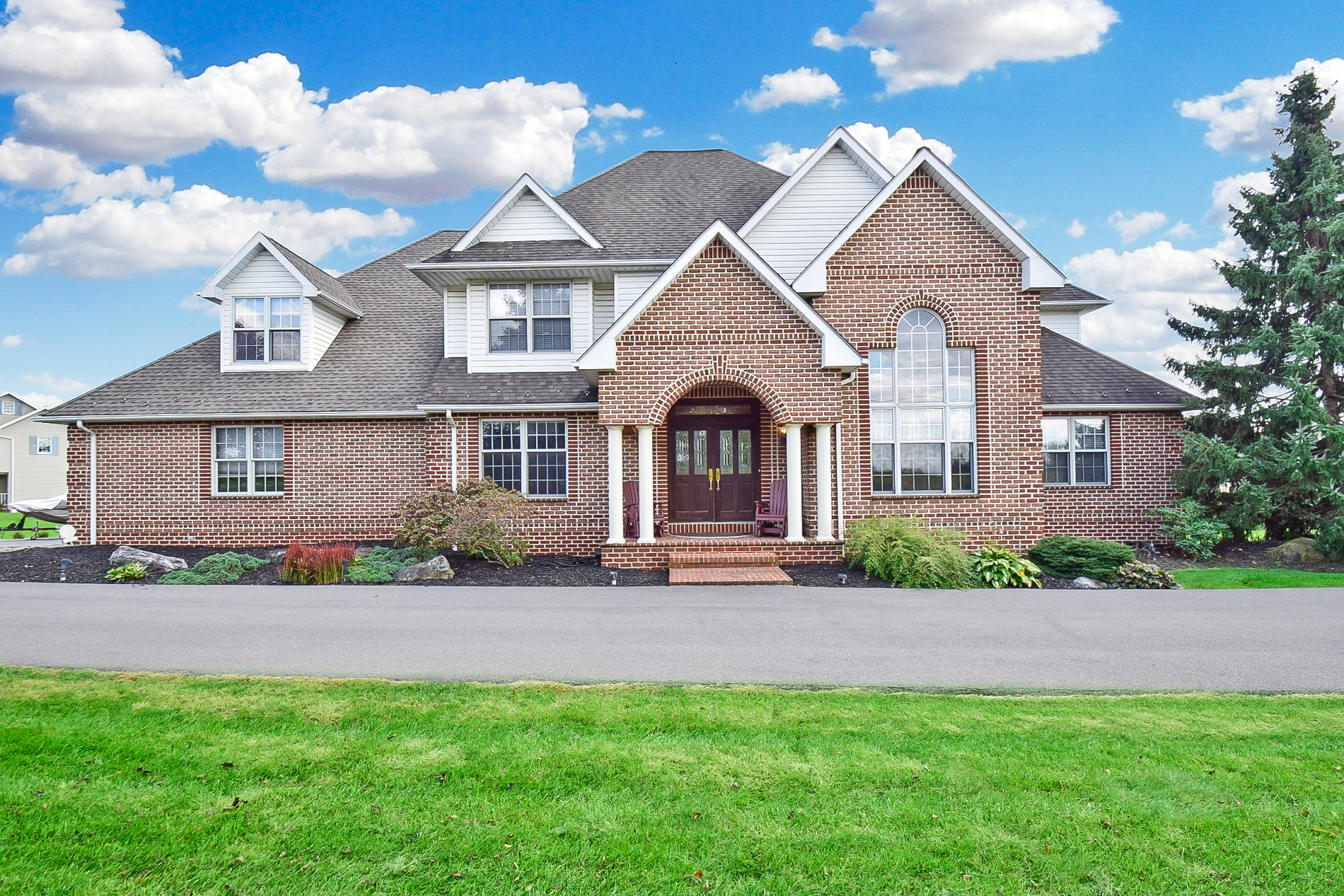
25 May Should I Flip, or Buy and Hold?
So many people ponder whether they should flip houses, or buy and rent out houses. We will examine the pros and cons of each strategy later in this article. Before deciding between those two distinct strategies, there are three questions to consider first:
- Why do I want to invest in real estate?
- What skills and resources do I have?
- What kind of experience am I looking to create?
Why do you want to invest in real estate?
John D. Rockefeller, the world’s first billionaire, famously stated, “If your only goal is to become rich, you will never achieve it.” A common trait of successful real estate investors is that they have vivid and compelling reasons why they want to create wealth. Some reasons include the desire to have enough money to build a hospital to help the sick, the desire to travel the world with family every summer, the intent to send one’s children to the best colleges, and the deathbed promise to one’s father to make the surviving mother a millionaire.
If a real estate investor does not have a deeply-held, inspiring personal reason to create wealth, they will falter when faced with a challenge. There are many would-be millionaire real estate investors who fall far short of their potential because they give up when faced with a problem that is greater than their desire to overcome it.
The first step on the path to becoming a successful real estate investor is to figure out what your purpose is. Who are you doing this for? Are you looking to obtain quick cash, or build wealth over the long term?
What skills and resources do you have?
Are you experienced with certain types of home renovations? Do you have access to discounted building supplies and relationships with reputable contractors? Do you have plenty of capital or easy access to a line of credit? Do you have the time to devote to a project? While human potential is unlimited, realistically what resources, talent, and time do you have at your disposal this year?
I have known aspiring flippers who spent over a year renovating their house because they did not dedicate enough time up front, so they ate up their potential profit with lots of extra mortgage payments. I have known flippers who ran out of money to complete their project because they did not budget properly or because they were overzealous with what they could accomplish. I have known investors who got divorced because they dedicated too much time to their projects or because they took reckless risks that created financial distress.
What kind of experience are you looking to create?
Are you looking for the excitement of transforming a house? Are you enthused about painting and laying new floors? Are you trying to be like somebody on a TV show? Do you want to one day pay off the mortgage on a rental property?
The concept of flipping a house tends to be sexy and appeals to the need for instant gratification. There are no TV shows about buying and renting a house. It seems that so many people want quick cash, yet true wealth is built over the long haul.
If you bought one house this year and rented it out with no problems, would you consider that a successful experience? Or would you be bored? I know a wealthy investor who came to the U.S. at age 18 with $300 in his pocket. He set a goal to buy one house per year for 10 straight years. The first house was his own home. The second year he ended up buying his property on December 31st. By sticking to a simple goal, he grew his wealth massively over time.
So, is being a flipper or a landlord the best strategy for you right now?
Pros and cons of flipping a house.
Buy low, renovate it wisely, and sell it quickly for a profit. Sounds simple, right?
Pros
Quick profit. First, I’m assuming you’ll make a profit. Second, I’m assuming you’ll price the property right so you sell it quickly. It is a joy to create value with a house and then be rewarded with a five-figure profit within a few months. You can then invest the profit into another venture and increase the velocity of your money.
Control. You don’t have to deal with customers or tenants. You show up at the house when you want, and you go home when you want. You can listen to your favorite music while you choose what to renovate. You control (or mostly control) your timetable (I say mostly control because sometimes contractors may take much longer to finish the job than you think).
Resolution. Your project has a beginning and an end. It can boost your confidence and give you valuable experience. If your family has been skeptical of what you’re doing, you can ease their concerns with a completed sale and a tidy profit. If you’re stressed about getting the job done, you know you can rest easy (and celebrate!) when the title company’s check clears.
Cons
Unforeseen expenses. This problem happens most often with newbies, yet professional flippers can deal with it too. You find something that requires more work than anticipated, and now you’re pouring more money and time into rectifying it. One unanticipated problem can erase or greatly lower your profit. A novice typically blows their budget because of unrealistic expectations. Novices often fail to factor in their closing, carrying, and selling costs.
Tax consequences. If you sell your house after owning it for less than a year and a day, then your profit is taxed at your ordinary income tax rate. A chunk of your profit actually belongs to Uncle Sam, and many flippers fail to set aside money for the taxes that are due next April 15th. If you sell a property after owning it for more than a year and a day, you pay long-term capital gains taxes, which for most people is only 15 percent.
Over-improving the property. So many newbie flippers spend too much time and money improving the property as if they were going to live in it. I have seen many investors (including myself in my early days) blow their potential profit because of an emotional desire to have a perfect house.
Paying too much on the front end and asking too much on the back end. So many investors offer too much for the house, and worse, they overprice it when trying to sell it. Often, I’ve seen flippers price the house too high because they know they spent too much on it. Your costs should not affect your asking price; the market does! A professional flipper operates on a strict budget and prices the house right to sell it quickly so they can roll into the next investment opportunity.
Pros and cons of buying and holding.
Pros
Building equity over time. Real wealth is built by owning real estate for the long haul. Properties tend to appreciate over time, and the mortgage balance keeps going down while the rents keep going up. You can even borrow against your equity to fund another acquisition. My biggest regret of flipping so many houses in my younger days is that I didn’t hang on to some of them. If I had rented some of those houses, by now they would be free and clear. Sigh.
Greater tax advantages. The benefits of depreciation and not having to pay capital gains taxes are powerful. Your accountant can also find other expenses and deductions.
Low pressure. The fable about the tortoise and the hare teaches us that slow and steady wins the race. If the housing market goes down temporarily, that really does not affect your cash flow much, if at all. You have money coming in from your tenant, which funds repairs.
Pride of ownership. Imagine driving by your properties and feeling the satisfaction of being on the path to wealth. Picture having these properties funding your child’s college education or your retirement.
Cons
Management challenges. Dealing with bad tenants can create a lot of stress. Sometimes tenants fail to pay their rent or breach the lease in another way. Knowing when to initiate an eviction proceeding and when to grant some grace is a hard decision. You can mitigate these stresses by hiring a professional property manager. A good property manager finds ways to improve your cash flow and the value of your asset, which more than justifies their fee.
Cost of turnover. It can cost a lot of money to paint the unit or change out flooring and appliances. If you cut corners, you may not attract the best or highest paying tenants. If you take too much time, you will miss out on the rent you could have collected.
Ongoing responsibilities. You have to handle certain maintenance and repairs, such as eventually replacing the roof or shoveling the snow. You are liable for what happens on the premises. Each municipality has certain requirements for landlords. Sometimes your day or week can be hijacked by an emergent issue with a tenant or a city inspector.
My opinion.
To flip or to hold is your decision, based upon your situation. I am a big fan of buying and holding. While I was once a professional flipper (that’s what I did for a living), I wish I had held onto more properties. I love seeing my mortgage balance go down while knowing that my property’s value goes up. My observation of millionaire and billionaire real estate investors is that they own rental properties for the long term. Of course, there are some properties and opportunities that are more conducive to flipping. My wife and I still flip, as there are some deals too good to pass up or sit on. I am also a fan of the “slow flip,” in which we improve a fixer-upper, rent it for at least a year, and then sell it. I like paying a lower capital gains tax rate on those slow flips. If your desire and/or skill set is more suited to flipping, then by all means do it. I suggest that you consider holding onto one or more of your houses. Regardless of your choice, I wish you great prosperity!






No Comments